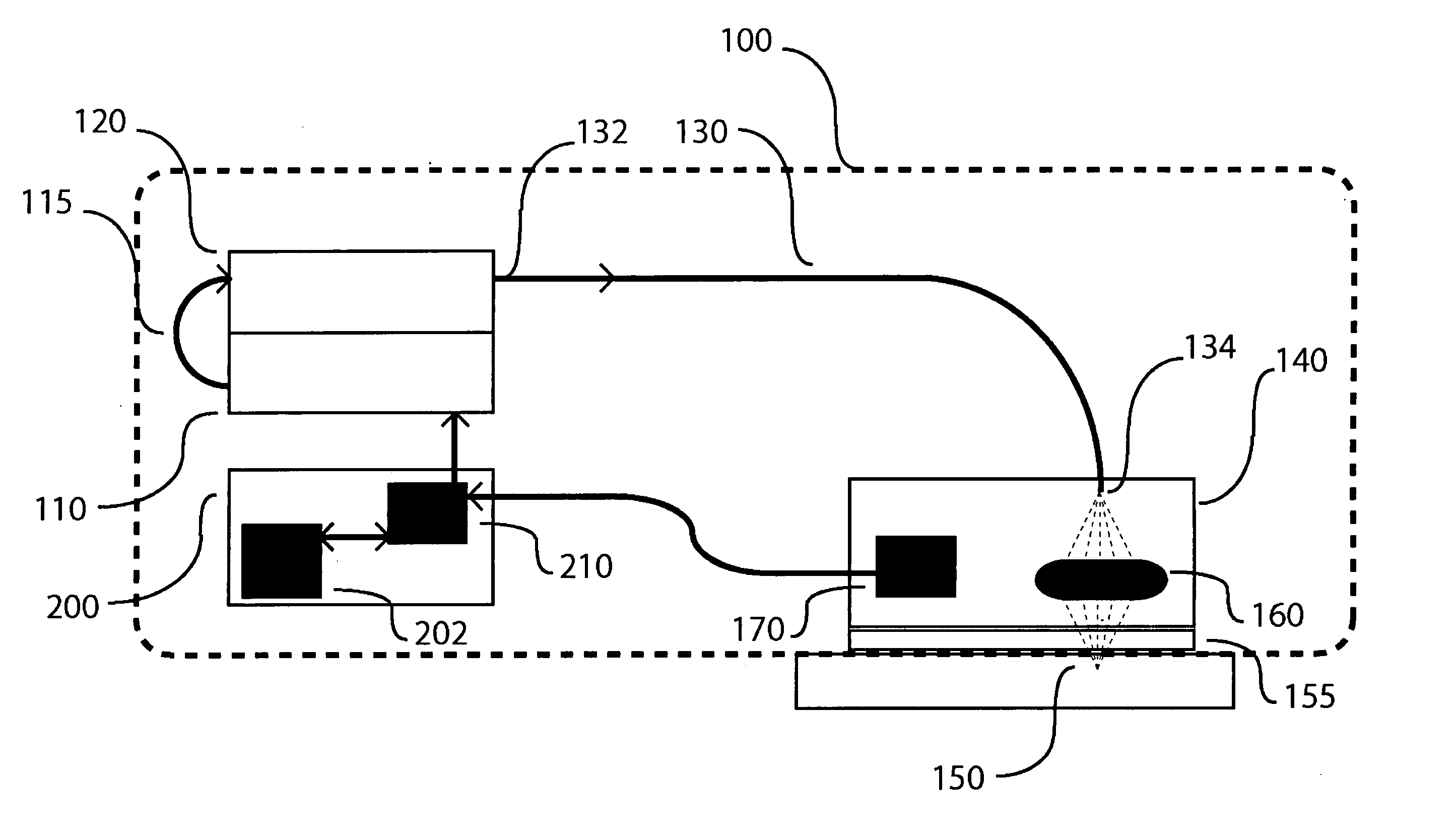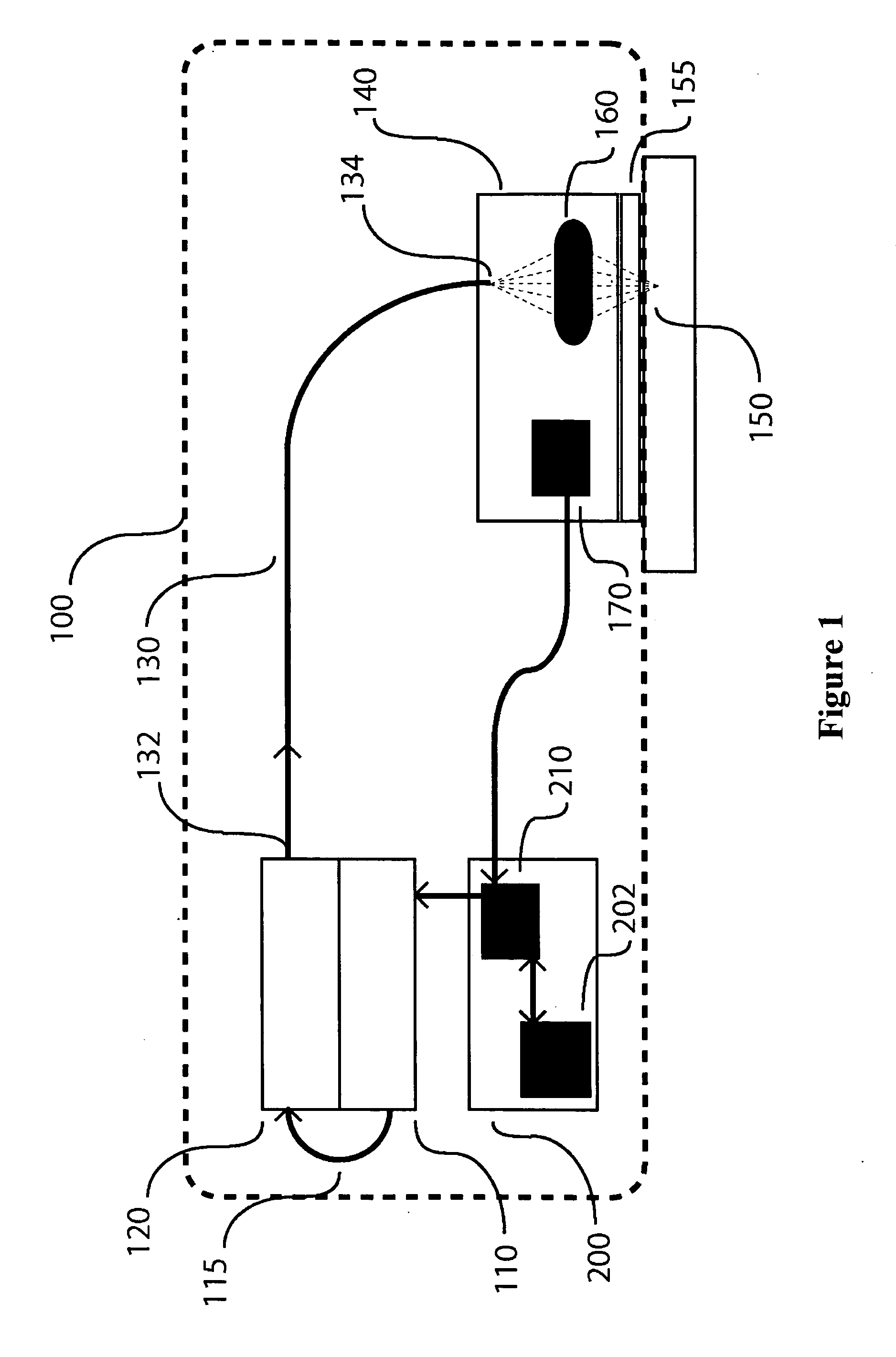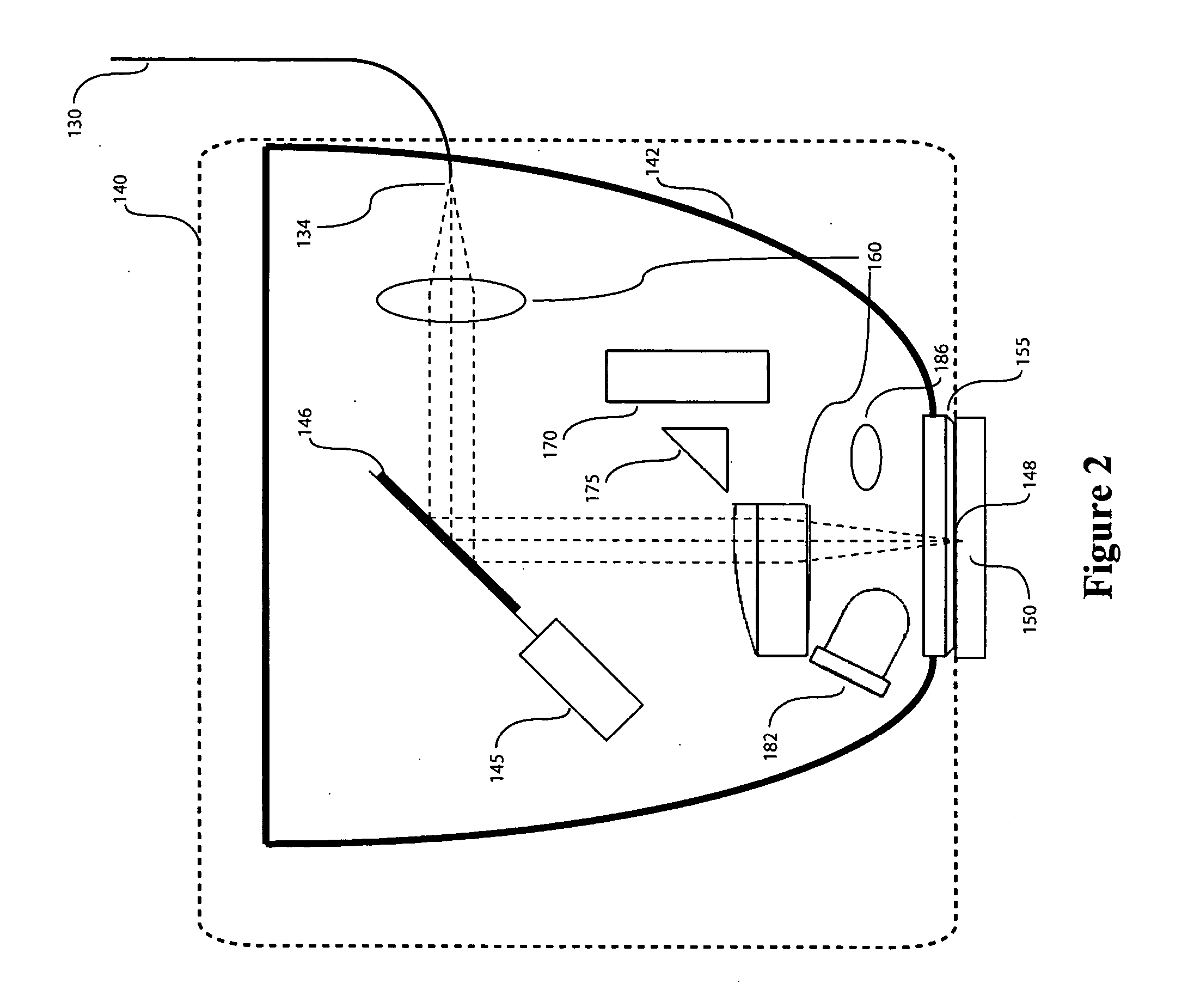Method and apparatus for monitoring and controlling laser-induced tissue treatment
a technology of laser-induced tissue and monitoring and control, which is applied in the direction of optical elements, instruments, and therapy, can solve the problems of undertreatment or overtreatment of the tissue, requiring strict precision in positioning the handpiece and application of controlled movemen
- Summary
- Abstract
- Description
- Claims
- Application Information
AI Technical Summary
Benefits of technology
Problems solved by technology
Method used
Image
Examples
Embodiment Construction
[0041]FIG. 1 illustrates a laser apparatus for controlled tissue treatment 100 in accordance with the present invention. Tissue may include skin tissue as well as other tissues throughout a living body. Various embodiments and examples described herein may refer to skin treatment, but it is understood by those skilled in the art that other tissues can be treated similarly.
[0042] In accordance with the exemplary embodiment shown in FIG. 1, apparatus 100 comprises power source 110 that energizes light emitter 120 for emission of a light beam via an electrical or optical connection 115; optical fiber 130 for transmission of the light beam; movable handpiece 140 with optical element 160 coupled to optical fiber 130 for emission of the light beam towards target area 150; detector 170 for detecting variations in positional parameters of handpiece 140; and controller 200 for controlling operational parameters of the light beam emitted towards target area 150 in response to the detected va...
PUM
 Login to View More
Login to View More Abstract
Description
Claims
Application Information
 Login to View More
Login to View More - R&D
- Intellectual Property
- Life Sciences
- Materials
- Tech Scout
- Unparalleled Data Quality
- Higher Quality Content
- 60% Fewer Hallucinations
Browse by: Latest US Patents, China's latest patents, Technical Efficacy Thesaurus, Application Domain, Technology Topic, Popular Technical Reports.
© 2025 PatSnap. All rights reserved.Legal|Privacy policy|Modern Slavery Act Transparency Statement|Sitemap|About US| Contact US: help@patsnap.com



